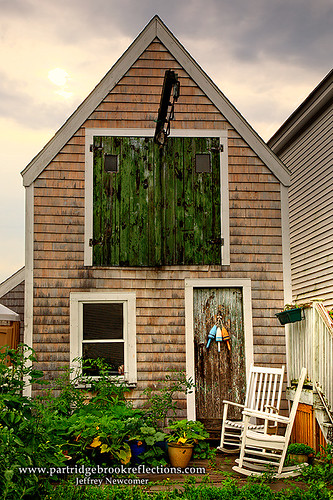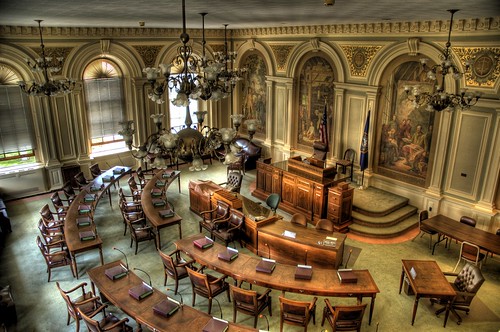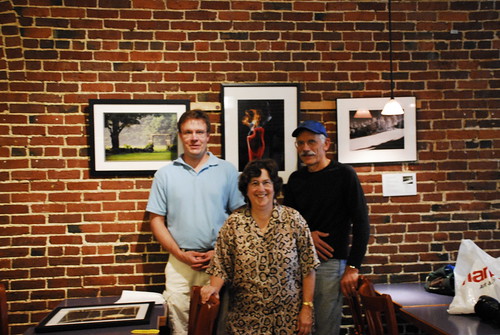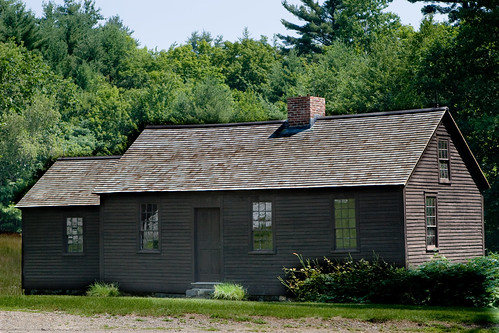Daniel Webster
Daniel Webster, b. Salisbury, N.H., Jan. 18, 1782, d. Oct. 24, 1852, statesman, lawyer, and orator, was his era's foremost advocate of American nationalism. A farmer's son, he graduated from Dartmouth College in 1801. After a legal apprenticeship, Webster opened a legal practice in Portsmouth, N.H., in 1807.
Rising quickly as a lawyer and Federalist party leader, Webster was elected (1812) to the U.S. House of Representatives because of his opposition to the War of 1812, which had crippled New England's shipping trade. After two more terms in the House, Webster left Congress in 1816 and moved to Boston. Over the next six years, he won major constitutional cases before the Supreme Court (most notably, DARTMOUTH COLLEGE V. WOODWARD, GIBBONS V. OGDEN, and MCCULLOCH V. MARYLAND), establishing himself as the nation's leading lawyer and an outstand outstanding orator. In 1823, Webster was returned to Congress from Boston, and in 1827 he was elected senator from Massachusetts.
New circumstances enabled Webster to become a champion of American nationalism. With the Federalist party dead, he joined the National Republican party, allying himself with Westerner Henry CLAY and endorsing federal aid for roads in the West. In 1828, the dominant economic interests of Massachusetts having shifted from shipping to manufacturing, Webster backed the high-tariff bill of that year. Angry Southern leaders condemned the tariff, and South Carolina's John C. CALHOUN argued that his state had the right to nullify the law. Replying to South Carolina's Robert HAYNE in a Senate debate in 1830, Webster triumphantly defended the Union. His words "Liberty and Union, now and forever, one and inseparable!" won wide acclaim.
Webster and President Andrew Jackson joined forces in 1833 to suppress South Carolina's attempt to nullify the tariff. But Webster and other opponents of Jackson--now known as Whigs (see WHIG PARTY, United States)--battled him on other issues, including his attack on the National Bank. Webster ran for the presidency in 1836 as one of three Whig party candidates but carried only Massachusetts. For the remainder of his career he aspired vainly to the presidency.
In 1841, President William Henry Harrison named Webster secretary of state. The death of Harrison (April 1841) brought John Tyler to the presidency, and in September 1841 all the Whigs but Webster resigned from the cabinet. Webster remained to settle a dispute with Great Britain involving the Maine-Canada boundary and successfully concluded the WEBSTER-ASHBURTON TREATY (1842). Whig pressure finally induced Webster to leave the cabinet in May 1843.
The annexation of Texas in 1845 and the resulting war with Mexico, both opposed by Webster, forced the country to face the issue of the expansion of slavery. Webster opposed such expansion but feared even more a dissolution of the Union over the dispute. In a powerful speech before the Senate on Mar. 7, 1850, he supported the COMPROMISE OF 1850, denouncing Southern threats of secession but urging Northern support for a stronger law for the recovery of fugitive slaves. Webster was named secretary of state in July 1850 by President Millard Fillmore and supervised the strict enforcement of the Fugitive Slave Act. Webster's stand alienated antislavery forces and divided the Whig party, but it helped to preserve the Union.
More from Wikipedia...
Photos taken in and around the state of New Hampshire
from the NH Flickr Group.
Come move with us to our new domain!
nhphototour.com
Tuesday, July 29, 2008
Daniel Webster Birthplace
Monday, July 28, 2008
AtlanticRest

Rainy overcast morning in New Castle, NH, near Portsmouth.
Saturday, July 26, 2008
Chicken farmer...

...I still love you.
As Paul Harvey says, "the rest of the story" from Yankee Magazine.
I Still Love You
Rev. Robin L. Zucker
September 2000
I begin this morning with Yankee Magazine's "Best Love Story of 1997."
Twelve feet or so off the edge of State Road 103, which runs through the small town of Newbury, New Hampshire there sits a squarish, flat brown-gray slab of rock roughly the height of a man.
About 25 years ago, across from the rock, there sat a tidy, cedar-shingled house in whose backyard a dozen chickens pecked about. Their eggs made breakfasts (and a tiny sideline business) for a family named the Rules -- whose daughter Gretchen was pretty, smart, wistful, and 16.
There was a shy boy, also wistful, also a farmer, whose name is forgotten today. He pined for Gretchen Rule. He cast about awkwardly for ways to tell her or show her...then he hit upon the rock. One moonlit night, he secretly wrote on it, in eight-inch high, spray-painted letters, "CHICKEN FARMER, I LOVE YOU. " And the girl must have seen it, and possibly even guessed the author, but nothing came of it.
The message endured for years, though brambles grew up to obscure it, and the letters, once so bold and white, began to fade. Gretchen Rule went away to Harvard, then on to life. The boy, whoever he was -- or is -- became a man. The rock grew into a relic, a love note out of time.
One night - ten, perhaps 12 years ago, the brambles were mysteriously cut away and the message was repainted and renewed: "CHICKEN FARMER, I STILL LOVE YOU," it proclaimed. And every two years or so, barely noticed, the letters would be freshened and the brambles cut away.
Then, in April of 1997, an unknown caller complained of "graffiti" to the Dept. of Transportation. By nightfall the same day, a three-foot square of rust-colored primer was all that was left of a shy boy's long-ago love. A week passed, and a new sun rose on New Hampshire's stubbornest love: "CHICKEN FARMER, I STILL LOVE YOU." But bolder this time: thicker-lettered, almost crude, and defiantly painted rather than sprayed.
In Newbury, the inspired townspeople took up a " Petition for the Status Quo" to protect their landmark. The government responded with a letter, promising that the Chicken Rock's message would be forever safe. And it is.
Now, to be sure, a veritable wellspring of sermons could erupt from this charming tale. Yet, the theme that has emerged most clearly for me, like broad white paint strokes on a granite slab , has to do with that old love which we've already experienced and known in each of our lives, and how this old love, defiant and resilient, even in the face of loss, can carry us forward along the twisting roadways ahead.
First, I'll tell you that one unromantic skeptic with whom I've shared the story of the Chicken Rock suggests that the farmer was downright pathetic to pine endlessly like he did for Gretchen Rule. But I disagree. In fact, I propose that despite the Chicken Rock, or actually, in light of it, it's far more likely that the farmer went on to love again. In my view, it is just too simplistic and too cynical to presume that because he continues to affirm, "Chicken
Farmer, I Still Love You"... that he is stuck in some miserable time warp of unrequited affection.
No, I don't think he's pathetic. I think he's brave. Because the truth is that it requires remarkable courage and faith for him, for us, to remember and affirm love. Not only the farmer's wistful, romantic variety, but, even more so, in cases when the love is embodied by someone cherished who has died or from whom we've become estranged in a broken or thwarted relationship.
Reconnecting with old love takes courage because it often means reconnecting with old pain, loss, grief, disappointment, or anger, and this is a tough expedition over rough terrain, which many of us, including myself, have experienced.
Yet, even as we love and lose and hurt, we might also learn that the only way to avoid loss is to avoid attachments, but that to do so is to avoid life, or at least a truly human life. If we shun close relationships, or never lets ourselves care deeply for another because of the pain of past love, we may succeed in avoiding the suffering of parting and loss. But we might also miss out on carrying some of the strength of old love forward into new relationships and
challenges. The shy farmer with his defiant and affirming love note could inspire us to believe this.
Sadly, not all the people in our pasts have loved us the way the boy loved Gretchen, or the way we deserve to be loved. There is no sentimental journey down bumpy roads pitted by the crushed rock of neglect or abuse. Sometimes, disengagement equals self care and right relationship means no visible bond at all. Yet, when it is safe for us to summon our courage to remember both the joy and the pain of love, we unlock the deepest meaning of the beatitude: "Blessed are they that mourn, for they shall be comforted."
As we conjure up the face of someone we've loved, or someone who has loved us - a parent or grandparent, a partner , a wise teacher, a child, a friend, or "the one who got away" - we might ponder what he or she has meant to us ; what she taught us; what he saw in us and hoped for us; why he forgave us; the joy she brought us; how he loved us or loves us still. Over time, we can experience healing and cleansing and comfort. Our broken hearts can heal open and love can pour out.
And, through it all, when human relationships disappoint us, as they sometimes do; when despair threatens joy like a swath of rust-colored primer, we can turn to the oldest, most rock-solid love of all -- agape, the universal and unconditional love that persists even when no love is reciprocated. Regardless of our differing theologies, I'd like to believe that on the byways of our imperfect lives, the sacred presence of agape marks the route at regular intervals with its empowering, boldly-painted reminder, "You are accepted...I Still Love You...and I always will, infinitely."
The late Rev. Elizabeth Tarbox has written: "Maybe love doesn't die, is not obliterated by hurts or anger. Maybe love is not wasted or silly, or found to be something other than love...Oh, my dear, do not despair that love has come and gone. Although we are broken, the love that spills out of us has joined the love that circles the world and makes it blessed."
This morning, may we pause for a moment to remember old love, both human and divine, that spills over from the past and blesses us; whether it be love that proclaims itself stubbornly in rustproof paint, love that is merely a relic, or love obscured by the brambles of pain.
And, in doing so, may we each hear these soul-nurturing words, in the voices of our individual choosing, and may they strengthen us along the way:
"Oh my dear, do not despair. I Still Love You."
Amen.
july storm

A view from along the path of the recent tornado, or at minimum very high winds which blew through the town of Barnstead yesterday.
Thursday, July 24, 2008
Tuesday, July 08, 2008
The partly cloudy patriot

Credit to Sarah Vowell for the title, stolen from one of her terrific books. It was pretty overcast that day. :-)
July 4th Parade, Amherst, NH.
Wednesday, July 02, 2008
New Hampshire Statehouse

New Hampshire Statehouse, Concord NH HDR
Tuesday, July 01, 2008
NH Photo Tour at the Works Bakery Cafe

Julia, Peter, and I hung 17 photos (1 more to come) at Bagel Works today for a showing through the entire month of July.
The Flickr-based New Hampshire group is proud to feature the photography of 18 of its members from the greater New Hampshire area at BagelWorks in Concord, NH for the month of July.
The self-selected photos portray the creativity of the group as they capture a wide range of images from still life to the natural beauty of New Hampshire.
The New Hampshire group on Flickr has over 800 members and over 18000 photos in its group pool. The group is active in photography meetups where two or more photographers get together to make photos at various locations in the state.
The group is open to everyone with an interest or a connection to New Hampshire and welcomes all levels of talent, skill, and experience. Professional photographers co-mingle with photographers who just started with the exciting hobby.
The group message board features New Hampshire-based photography projects including NH Historical Markers, NH Town Landmarks, NH Waterfalls, and more.
Discussion threads also provide educational discussions with a Tech Talk series that include composition, exposure, equipment, and other photography-related technologies.


